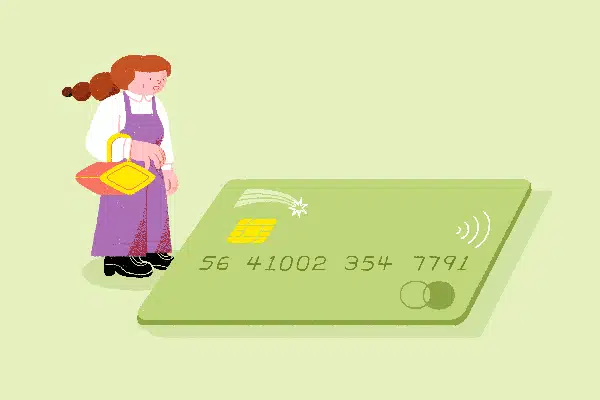How Many Credit Cards Is Too Many?

Some financial "gurus" will tell you to avoid credit cards like the plague if you want to stay out of debt, much less diversify the types of cards you have. But if you’re an autonomous adult, capable of making decisions for yourself, making smart choices about credit cards isn’t something to be afraid of.
Yet, there’s a fine line to straddle between not having “enough” credit cards and having way too many. Here’s what to consider before adding another line of credit to your wallet:
First ask: How good am I with my current credit cards?
Do you jump at every *flash sale* email in your inbox? Do you ever find your bank account going into the negatives because you couldn’t resist ordering Thai food with friends? How about making big purchases on your credit cards that are impossible to pay off in full at the end of each month?
If that’s the case, then you do not want to get yourself into a problematic situation by having too many lines of credit at your disposal.
“Being ‘good’ with credit cards isn’t about how many cards you have, it’s how you manage them,” says Rod Griffin, the Director of Public Education and Advocacy at Experian.
Credit lenders are looking to see that you use less than 30% of your available credit and pay at least the minimum payment due on your cards each month. Even if you don’t adhere to these basic rules, you can still get approved for credit cards—but the interest rates will probably be a lot higher than someone with a good credit history.
If you already have trouble staying below a certain amount without making those payments in full, a high interest rate can get you into murkier water. If you’re drowning in debt with a wallet full of Visa and American Express, adding more to the mix is probably not a good idea.
Then, ask yourself: What perks am I looking for?
There are times where the promises of special loyalty cards make sense, but you need to be strategic with them.
“You only really need one or two cards,” says Griffin, “But while your bank credit card might give you universal points or cash back, using a particular retailer’s card could get you a greater return.”
So if the vast majority of your shopping is done via your Amazon Prime account, it’s probably not a bad idea to add the Amazon Prime Rewards Visa Signature to your wallet in order to get that sweet 5% cash back on Amazon purchases.
But what if the perk is a more here-and-now situation? Many retailers offer big signing bonuses or price reductions when you enroll in their credit card program. Griffin says it can be especially enticing during holidays as companies push employees to promote their store cards to entice shoppers to buy more.
“Anything you do out of impulse or for status is usually a bad idea, especially when it comes to credit cards,” says Griffin.
Most of the time, unless you’re a consistent shopper or frequent flyer, you’re better off just using a cash-bank bank card.
How much money do I make?
You don’t have to be making six figures to add a new credit card with a higher limit to your arsenal.
“Just because someone has a larger income doesn’t mean they use it to pay off debt,” says Griffin. “The credit made available to you is totally unrelated to your paycheck.”
When determining eligibility, credit card lenders prioritize repayment history over income. That being said, it’s not a bad idea to think about whether or not you have the funds to pay off a higher-than-usual balance in potential emergency situations.
While mortgage lenders use a debt-to-income ratio to determine eligibility, credit card companies have no such requirement, and your DTI has no effect on your overall credit score. However, doing your own calculations can give you a good idea of whether or not you can safely take on a new line of credit.
To calculate the ratio you want to take your monthly debt repayments and divide it by your gross monthly income. For example, if you have a $200 monthly student loan payment, average a $600 credit card bill each month, and make $4000 a month, your equation would look like this:
($200 + $600)/$4000 = .2 or 20 percent DTI.
You want to aim to use less than 36% of your monthly income on debt (based on mortgage lenders’ standards)— so if you consistently pay off debt on time and in full, having a 20% debt-to-income ratio means you can probably safely apply for another credit card without issue.
So, is there a perfect amount of credit cards to have?
In general, if you have one or two credit cards on hand, you’re good to go. But if you pay off your bill in full every month, never use more than 30% of the credit you receive, and make informed choices, then it’s not necessarily bad to have a lot of credit cards, especially if they provide a diverse array of benefits.
Typically, you don’t want to have multiple cards that all serve the same basic purpose. You don’t need a Costco, Sam’s Club, and Amazon credit card if you like to buy in bulk — instead, select the store you frequent the most and build points through store loyalty.
“Credit cards open up new opportunities,” says Griffin, “If you’re a low risk borrower, your priority should be making sure your portfolio is the right mix, not limiting your options.”
More From Money:
The Best Credit Cards for 2020
